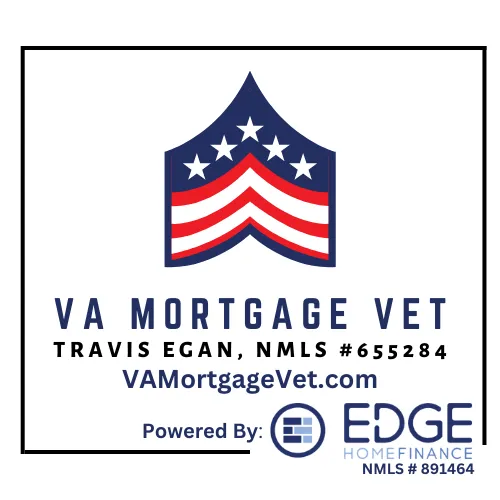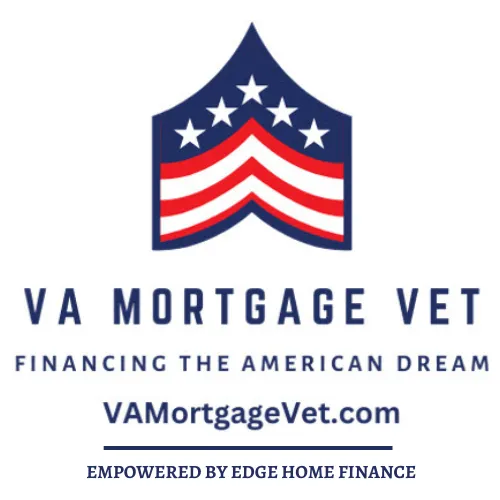COMING SOON: My new Book
"Boots to Roots: A Step-by-Step Roadmap for Turning
Your Military Service into a Lifetime of Home Ownership Success."
I HATE WHEN VIDEOS PLAY AS SOON AS THE PAGE OPENS
CLICK PLAY BELOW FOR A SPECIAL MESSAGE

Comparing FHA vs. VA Loans: Key Differences and Which is the Best Option
Is a VA Loan or FHA Loan Better for Your Home Purchase?
Deciding between an and a is crucial when buying a home. Choosing the right one can affect your costs and your experience. The choice depends on your financial needs. Each loan type has unique features.
FHA loans help those who need a hand to buy a home. The Federal Housing Administration provides support for them. VA loans, on the other hand, are for veterans and their families. The U.S. Department of Veterans Affairs is responsible for providing them. Knowing the differences between FHA and VA loans is important. It helps you pick the best match for your needs.
Key Takeaways
FHA loans require an upfront premium. They also have annual premiums. In contrast, VA loans require a one-time funding fee.
VA loans usually offer lower interest rates than FHA loans.
With FHA loans, you must pay a minimum of 3.5%. However, VA loans don't require a down payment.
FHA loans have specific credit score requirements. In comparison, VA loans are more lenient.
Both types of loans have conditions on the property and debt-to-income ratios.
Understanding FHA and VA Loans
If you're thinking about buying a home, you might look at different loan options. Two common choices are FHA and VA loans. They're both supported by parts of the government. This support aims to help more people own homes. Let's see how these loan types are different.
What is an FHA Loan?
The Federal Housing Administration, which is a part of the Department of Housing and Urban Development, insures FHA loans. With an FHA loan, the FHA will help cover the loan if you can't pay it back. This means lenders can offer better terms, like needing less money upfront or allowing you to borrow more. It's good for those with average salaries or lower credit scores to get a house.
What is a VA Loan?
The U.S. Department of Veterans Affairs backs VA loans for service members, veterans, and their spouses. If you're eligible for a VA loan, the VA will support part of it. This makes lenders feel safer, so they offer better interest rates with fewer costs. One significant difference between FHA and VA loans is that VA loans often require no down payment.
Both options help people who might find conventional loans tough. Choosing the right one depends on your military ties, your financial situation, and what you want in the future.
Key Differences Between FHA and VA Loans
When you want a mortgage loan, FHA and VA home loans can be better than traditional conventional loans. Still, they differ in key ways. Know these differences to choose wisely for your needs.

Down payment requirements are a big difference. To get an FHA loan, you need at least 3.5% down if your credit score is 580 or higher. That's $7,000 for a $200,000 home. If your score is lower, you'll need to put 10% down, which is $20,000 for that same home. VA loans don't need a down payment. They are great for people without lots of money saved up.
The costs for mortgage insurance and fees also differ. FHA loans mean paying an upfront mortgage insurance premium (MIP) of 1.75%, plus an annual MIP from 0.15% to 0.75%. This changes based on the loan term and size, and the down payment. VA loans instead have a one-time funding fee. It's 2.15% for first uses with no down payment or 3.3% for second uses. If you put down 10% or more for a VA loan, you might pay a lower fee of 1.25%.
It's key that FHA loans need you to keep paying for mortgage insurance. On the other hand, VA loans don't require this, which can save money over time.
In addition, VA loans usually have lower interest rates than conventional or FHA loans. You could even get a lower rate with a good credit score or a big down payment.
Eligibility Requirements
The difference between FHA and VA loans is who can get them. VA loans need something special: you must have served or be currently serving in the military.
FHA Loan Eligibility
FHA loans don't need any military link. They are open to those who show they can repay. Lenders check your credit, job history, and money situation to see if you qualify for an FHA loan.
VA Loan Eligibility
VA loans are for those who served in the military. You can get one if:
Be an active-duty service member
Be a veteran of the U.S. Armed Forces
Be a member of the National Guard or Reserve
Be an eligible surviving spouse of a veteran
How long and what you did in the military, and your VA entitlement, matter. If the service checks out, you're good to go. A VA loan brings perks for these service members.
The FHA vs. VA loan scene looks like this:. FHA loans are for many, but VA loans aim to help military connect with home buying.
Down Payment Requirements
Understanding the differences between FHA and VA loan programs is key. Both have support from government organizations, but their requirements are different.
FHA Loan Down Payment
An FHA loan needs a minimum down payment of 3.5% if your credit score is 580 or higher. But, if your score is 500 to 579, you must put down at least 10%. This flexibility helps first-time buyers or those with low savings.
VA Loan Down Payment
A big plus with VA loans is the zero down payment needed to buy a home. This is great for military members who qualify, making it easier to own a home. However, a one-time VA funding fee is charged, ranging from 1.25% to 3.3%.
Unlike FHA loans that require a set down payment, VA loans let qualified buyers own a home with no money down. This is a huge benefit for military families and veterans. It makes buying a home much easier.
Mortgage Insurance and Fees
One big difference between FHA and VA loan options is in the insurance and fees. To get an FHA loan, you must pay mortgage insurance. But with a VA loan, you pay a VA funding fee instead.
FHA Mortgage Insurance Premium (MIP)
FHA loans have two types of mortgage insurance. You pay an upfront MIP of 1.75% of the loan amount. Then there's an annual MIP of 0.15% to 0.75% of the loan balance for the life of the loan.
If you make a 10% or more down payment, you can stop paying the annual MIP.
VA Funding Fee
VA loans have a funding fee instead of mortgage insurance. This fee is paid at closing. For first-time VA borrowers with no down payment, it's 2.15% of the loan amount. If you've had a VA loan before, it goes up to 3.3%.
Making a 10% or more down payment decreases the funding fee to 1.25%.
VA loans don't have an annual fee or ongoing mortgage insurance. This means big savings over the life of the loan for those who qualify for a VA loan.
Credit Score Requirements
Another key difference between an FHA and VA loan is their credit score needs. VA loans don't have a fixed minimum credit score. However, most lenders usually look for scores of around 580 or higher. If you are looking at a VA loan, lower credit scores could be okay. The VA Mortgage Vet team recently helped an active-duty service member and her husband with a 500 credit score buy their first home. Lenders review the whole application, including your repayment ability, before deciding.

Conversely, FHA loans are stricter with credit scores. The Federal Housing Administration mandates a minimum credit score of 580 for you to qualify, with a 3.5% down payment. For scores between 500 and 579, a 10% down payment is needed for an FHA-backed loan.
Remember, although VA loans don't require mortgage insurance, a VA funding fee is charged upfront. This fee changes depending on factors like your down payment and if you've used a VA loan before. Also, if you're a veteran with a service-connected disability, you do not have to pay the funding fee. The main difference here is that VA loans are not as strict on credit, but you do have to pay additional fees, while FHA loans have more rigid credit rules and require mortgage insurance.
Ultimately, if you have a lower credit score, consider an FHA loan. You need to meet the minimum score and be able to handle the down payment and insurance costs. If your score is around 580 or higher and you qualify for a VA loan, it might be the better choice. VA loans offer wider credit flexibility and you won't pay for monthly mortgage insurance.
Is a VA Loan or FHA Loan Better?
Deciding between a VA loan and a FHA loan involves looking at different things, like interest rates and loan limits. Each loan type has its own benefits, so what's best for you needs a closer look. Think about your financial situation and what you're aiming for.
Comparing Interest Rates
VA loans stand out because they don't need mortgage insurance. This means your costs can be lower than with FHA loans. Also, VA loans often have lower interest rates than FHA loans. Yet, what rate you get is tied to your credit score, what you make, and other financial details.
In 2023, the difference in rates was.226% on average, favoring VA loans. Remember, it's wise to look around and check what different lenders offer. This way, you could save more with the best rate.
Loan Limits
Loan limits are another big point to compare. There's a cap on FHA loans, set at $498,257 on a single-family home for many. Yet, VA loans will cover the full home price if you have full VA benefit rights. This makes VA loans a great pick for pricier homes.
If you can't get a VA loan, FHA loans still have their own strong points. They let you put down less and have easier credit rules. So, they're a good option for lots of people looking to buy a home.
Property Requirements
When you look at an FHA loan program or a VA loan vs. other mortgage choices, you need to know about the house requirements. Each FHA and VA loan tends to have its own needs for the homes it finances. They both want the homes to be safe, secure, and ready to be lived in. This is so the new homeowner can move in without worrying.
FHA Property Standards
To get an FHA loan, the house must meet important standards. The Federal Housing Administration has set rules for what a house should have. This includes checking the house's structure, plumbing, and more. A special FHA appraiser looks at the house to make sure it's up to these standards. Then, the loan can be approved.
VA Minimum Property Requirements
VA loans are specifically designed for those who served in the military. The homes bought with VA loans must also meet certain rules. These rules make sure the homes are safe, structurally sound, and free of health risks. This is for the wellbeing of those who will live there.
The VA interest rate reduction refinance loan has a big plus too. It lets you refinance your VA loan without an appraisal of the home. The property only needs to pass the first appraisal and meet the necessary requirements.
Debt-to-Income Ratio
Deciding whether an FHA or VA loan is best means looking at your debt-to-income (DTI) ratio. This ratio compares your monthly debts to your income. Lenders check this to see if you can handle your loan payments.
FHA Debt-to-Income Ratio
With FHA loans, your debt can't be over half your income. This 50% rule includes your payment for an FHA loan. So, make sure your debts don’t add up to more than 50% of your income each month.
VA Debt-to-Income Ratio
VA loans do not require a set ratio, but most lenders won't go over 41%. Yet, if you meet all the VA loan requirements and look like a good bet for repaying the loan, they may allow a higher ratio.
FHA loans could be better if your debts are high since they are more flexible. However, VA loans are only available for military personnel who qualify. On the other hand, FHA loans are for anyone who can meet their financial standards.
Your lender looks at many parts of your finances to decide what loan you get, like your credit and job history. They will also consider how much you can pay each month. Knowing your DTI ratio is key to picking the right loan and getting approved.
Streamline Refinance Options
The government backs FHA loans and VA loans. This helps by insuring the loans. It gives lenders the chance to offer easier ways to refinance. In a streamline refinance, borrowers can refinance with less paperwork. This makes getting a new loan of the same type quicker and simpler.
With FHA loans are backed, homeowners can use the FHA Streamline Refinance option. This means they can get a new loan with less paperwork. It might reduce the loan's cost by getting a better interest rate or loan terms. This is based on the program's rules.
The U.S. Department of Veterans Affairs is responsible for backing VA loans. They have a similar refinance program known as the Interest Rate Reduction Refinance Loan (IRRRL). This program is for veterans and military members. They can refinance into a new VA loan, which might have a lower interest rate. This depends on current loan market conditions.
Both the FHA Streamline Refinance and the VA IRRRL make the home loan process simpler. They skip some paperwork like proof of income and house appraisals. This helps required for all FHA borrowers get better loan terms without a full refinance hassle.
Conclusion
The choice between an FHA loan and a VA loan really depends on my own financial situation and if I qualify. If I'm in the military, VA loans let me get a loan with little to no down payment and without needing mortgage insurance. On the other hand, FHA loans are available to more people and are still a good choice, especially if you have a low credit score or do not have a lot of money for a down payment.
The government backs VA loans, which frequently have lower interest rates than FHA loans. But, I should carefully look at the total loan amount and extra costs, like the VA funding fee. FHA loans, however, have mortgage insurance premiums. These can make the loan last longer and cost more over time.
When making a decision, I need to look at my financial details closely. This includes my credit score, debt ratio for FHA loans, and how much I can put down. I can use these loans to buy a new home or change my existing mortgage. It’s important to think about the good and bad sides of each loan type. This way, I can pick the one that’s best for me. I should do a lot of research and talk to experts in loans. They can help me find the right mortgage that fits my goals for the future.
FAQs (Frequently Asked Questions)
Q: What’s the difference between FHA and VA loans?
The Federal Housing Administration backs FHA loans, which require a lower credit score and down payment. VA loans are government-backed loans for veterans, active-duty military, and their families, and often come with more favorable terms compared to conventional loans.
Q: Which loan is best for first-time homebuyers, an FHA or VA loan?
For first-time homebuyers, it depends on your eligibility. If you’re a veteran or qualify for a VA loan, the benefits can be significant, like no down payment and no private mortgage insurance. If you don’t qualify for a VA loan, an FHA loan is generally a great alternative because of its low down payment requirements.
Q: How do FHA loan limits and VA loan limits compare?
FHA loan limits vary by county and property type but are generally lower than conventional loan limits. VA loans don’t have a set limit; instead, VA doesn’t set a limit but guarantees a portion of the loan, making it possible for lenders to offer more favorable terms.
Q: What are the key VA loan requirements?
VA loan requirements include being a veteran, an active-duty service member, or an eligible family member. You'll also need to meet credit and income requirements set by the lender, but generally, these loans have more lenient criteria compared to conventional mortgages.
Q: Can I apply for both an FHA and a VA loan?
You can only use one type of loan to purchase a home. If you qualify for a VA loan, it’s usually the better option due to its benefits. If not, then an FHA loan can be a great alternative.
Q: What happens if I default on a VA loan?
If you default on a VA loan, VA will pay a portion of the loan to the lender, but it can still affect your credit score and future eligibility for another VA loan. Just like with conventional loans, it’s best to avoid default. The VA has several programs to assist veterans who are in default to avoid losing their homes.
Q: Are there any additional fees with FHA loans compared to VA loans?
Yes, FHA loans require you to pay mortgage insurance premiums (MIP), both upfront and annually. VA loans usually don’t have mortgage insurance, but there can be a funding fee depending on the loan and your military category. However, this might be waived if you have a service-related disability.
Q: How do interest rates generally compare between FHA and VA loans?
Interest rates for both FHA and VA loans are typically lower than those for conventional loans. However, VA loans often have even lower rates compared to FHA loans because they are intended to benefit veterans and their families.
Q: Can I use either loan program to refinance my home?
A: Yes, both FHA and VA loans can be used to refinance your home. For VA loans, you can use an Interest Rate Reduction Refinance Loan (IRRRL) to lower your interest rate. FHA loans offer a streamline refinance option to simplify the process if you already have an FHA loan.
Q: If I’ve used a VA loan before, can I still get another one?
Absolutely. If you have restored your full VA entitlement, you can use a VA loan again. Even if you haven’t paid off your previous VA loan, you may still have some entitlement left to use.
For further advice on how to make sure your VA home loan process goes as fast and smoothly as possible, please read our article titled: How Hard Is It to Qualify for a VA Loan? VA Home Loan Eligibility
Contact Us
5868 Baker Road
Minnetonka, MN 55345
Travis Egan, VA Mortgage Vet
Programs, rates, terms and conditions are subject to change at any time without notice. All approvals are subject to underwriting guidelines.
Restrictions apply depending on program selected.
No official U.S. military or other government agency endorsement is implied.
Copyright © 2024 Edge Home Finance | All rights reserved.
Copyright © 2024 | Edge Home Finance | All rights reserved.





